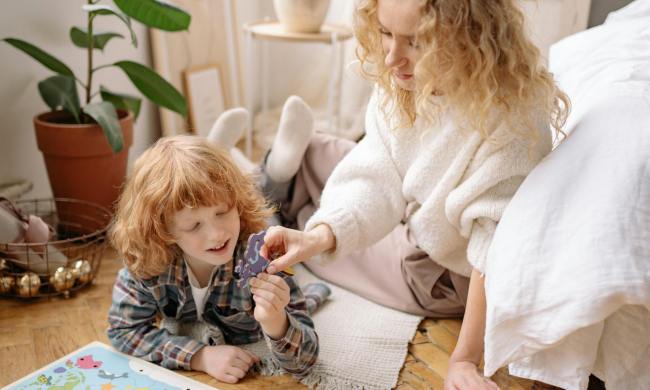New parents are no strangers to hearing unsolicited advice. It seems everyone has an opinion on just about everything when it comes to raising kids. People like to chime in with random recommendations, products parents should or shouldn’t get, or simply the many ways they think their parenting style is better than yours.
While suggestions are great, advice for new parents can come in a way that’s more welcome than others. If you want to be supportive but not overstep boundaries, stick to these topics.
Trust your instincts

Getting advice from those you trust is important, but so is trusting your gut instinct. No one knows your baby as well as you do so if you suspect something is off or amiss with your baby, don’t hesitate to ask for help or reach out to your pediatrician. Trust your intuition when it comes to making decisions about your baby, especially if it concerns their health and welfare.
Every baby is different so while getting advice from family or friends can be incredibly helpful, you know your baby better than anyone. It can also be easy to get caught up in comparing your baby to others but try to avoid doing that. Your baby will grow and develop at exactly their own pace.
Find your support squad

There’s going to be stress no matter what, so your support system is key. Help the new parent find a group they would feel comfortable in. Check your local library, community center, Facebook, or even nearby schools for different groups the new parents could join. Whether they want a play date or an emotional support group, there is a place for every type of new parent.
Don’t be too big to accept help

If someone offers help — take it. New parents want to spend every second enjoying their new bundle, and while that is understandable, you cannot do it all alone. While keeping your boundaries in place, make a list of help you’d personally love to have.
Do you want meals delivered to the doorstep? Do you want help exclusively with cleaning? Are there other siblings that could use extra attention? Have a sign-up for relatives or friends to take on those tasks themselves. People love to help out a new parent, so let them, as long as it’s still on their terms.
Even veteran parents have questions

Don’t ever be afraid to ask questions. Each age is a first experience for a parent that comes with a whole new set of questions. But there’s also the fact that no two babies are the same, so even if you have more than one child, this new baby could need a different kind of parenting manual.
New parent or veteran, ask the question. That goes for any doctor’s visits, asking other parents at playdates, or any time you’re around other fellow mini-human wranglers. Ask away.
Hold that baby as much as you want

You will have a newborn for a month, and an infant for one year. Hold that baby. You cannot spoil your little nuggets by holding them too much or giving them too much attention. If anyone gives advice like “put the baby down and do something else,” you never have to listen to them. Soon, you’ll have a toddler that you’ll never be able to catch, so enjoy those snuggles.
Be in the picture

Be in the picture. Be in the picture. Again, be in the picture. We know new moms do not want to have their postpartum look captured, but in a few years, they will wish they were in the shot. So, partners, take the pictures with Mom in them no matter what.
Put advice like “when the baby sleeps, you sleep” to bed. Instead, offer advice that any new parent would be happy to hear. If a parent asks you for your words of wisdom, it’s your chance to be nothing but encouraging and helpful.




